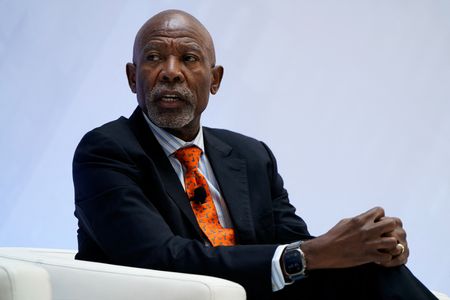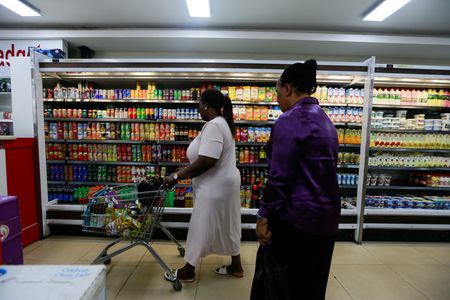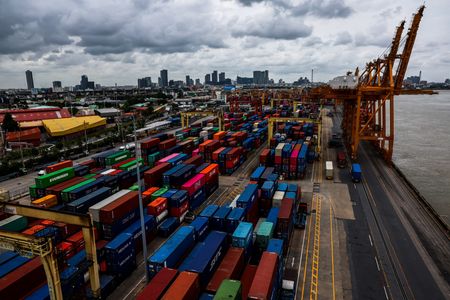CAIRO (Reuters) -Egypt’s progress on structural reforms under an $8 billion International Monetary Fund loan agreement has been mixed, the fund said, citing the public sector’s continued dominance of the economy as a problem.
In its long-delayed staff report for the fourth review of Egypt’s programme, the IMF said there had been limited headway in reducing the role of state- and military-owned firms which enjoy preferential treatment in the form of tax exemptions, access to prime land and cheap labour.
These companies remain largely shielded from public scrutiny, with “very limited transparency about their financial condition”, the fund said.
Egypt’s reliance on a state-led growth model, centred on mega-projects and public investment, was curbing job creation and stifling the private sector in an increasingly volatile global environment, it said.
“The resulting financial and resource distortions have left Egypt with a large informal economy and few buffers against growing global financial, geopolitical and climate shocks,” the fund said.
The report was published late Tuesday, four months after the board approved the review and unlocked a $1.2 billion disbursement. Total disbursements are around $3.5 billion.
The 46-month facility was signed in March 2024 following more than a year of severe foreign currency shortages and inflation that peaked at 38% in September 2023. The Fund said last week it would merge the fifth and sixth programme reviews into one later this year to give Egypt more time to implement critical reforms.
Finance Ministry officials were not immediately available for comment.
The fund forecast that Egypt’s external debt would rise from $162.7 billion in 2024/25 to $202 billion by 2029/30. Public debt overall “poses a high risk of sovereign stress”, it said, urging authorities to broaden the tax base, phase out untargeted subsidies and increase oversight of off-budget entities such as the state oil company EGPC and the urban development authority NUCA.
The report also cited “persistent and successive external shocks” that it said had “complicated policy execution”, including the war in Sudan which has pushed hundreds of thousands to flee to Egypt, as well as trade disruptions in the Red Sea which reduced foreign exchange inflows from the Suez Canal by $6 billion last year.
(Reporting by Mohamed EzzEditing by Alexander Dziadosz and Peter Graff)










